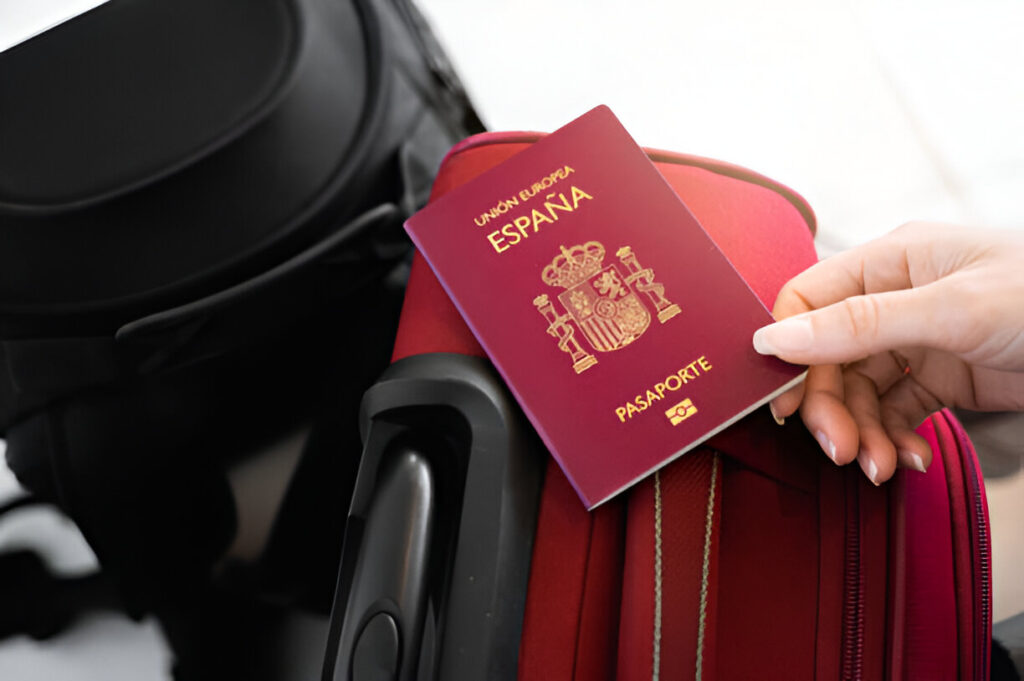The Spain Retirement visa is an attractive option for those dreaming of enjoying their golden years in a sunny European country. This visa allows retirees to reside in Spain while enjoying the rich culture, stunning landscapes, and vibrant lifestyle. If you’re considering making this move, it’s essential to understand the ins and outs of this visa option, especially how it affects Spanish visas for American citizens and other nationalities.
What Is the Spain Retirement Visa?
The Spain Retirement visa is designed for financially self-sufficient individuals who wish to retire in Spain. This visa enables you to live in Spain for an extended period, typically up to one year, with the possibility of renewal. However, applicants must meet specific financial and health criteria to qualify.
Financial Requirements for the Spain Retirement Visa
One of the biggest hurdles is proving that you’re financially independent. To qualify, you must show you have enough money to cover your living expenses without relying on a job in Spain. The Spanish government wants to ensure you can live comfortably, which means having a steady income from pensions, investments, or savings. You’ll need to provide bank statements or proof of income to show that you meet these criteria.
Health Insurance Is a Must
Having private health insurance is another essential requirement. Spain wants to ensure you’re covered in medical issues since public healthcare isn’t included for non-working visa holders. You’ll need a policy from a Spanish provider or one recognized in Spain. The coverage should be comprehensive and cover all possible medical needs while you’re in the country.
Long-Term Stay with Renewals
The retirement visa starts with a one-year stay, but the good news is that it’s renewable. After the first year, you can apply for a renewal if you’re still enjoying life in Spain and want to stay longer. These renewals can extend your stay for up to five years. Once you’ve lived in Spain for five years, you may even be eligible for permanent residency, which allows you to stay indefinitely without having to reapply.
No Work, But Plenty of Freedom
This visa is all about enjoying your retirement, not working. The Spanish Retirement Visa doesn’t allow you to seek employment in the country but will enable you to travel across the Schengen Area without additional visas. So, while you won’t be working, you can explore other parts of Europe easily, soaking in the different cultures and experiences at your own pace.
Who Can Apply for the Spain Retirement Visa?
Are you thinking about retiring to sunny Spain? It’s not as complicated as it sounds. The Spain Retirement Visa, commonly known as the Non-Lucrative Visa, is a great option for non-EU nationals who want to enjoy their retirement in a peaceful European country. But who exactly can apply for this visa? Let’s break it down step by step.

Non-EU Nationals
The Spain Retirement Visa is available for those not citizens of the European Union, the European Economic Area, or Switzerland. This visa might be perfect for you if you’re from the United States, Canada, Australia, or another non-EU country. Spain offers this visa to non-EU retirees who can prove they have enough financial means to support themselves without working in the country.
Financial Requirements
This is a big one. To be eligible for the retirement visa, you must show enough income or savings to live comfortably in Spain without relying on a job. The main applicant’s income requirement is around €2,400 per month. If you’re bringing a spouse or dependents, you’ll need an extra amount, usually 600 euros for each additional family member.
Proof of Health Insurance
Healthcare is crucial, especially during retirement. Spain requires applicants for the retirement visa to have private health insurance coverage with a Spanish provider. This ensures you’re covered for medical emergencies or treatments, as the visa doesn’t grant automatic access to Spain’s public healthcare system.
No Work or Professional Activities
This visa is strictly for people who want to retire in Spain, meaning you cannot work or engage in any professional activities there. It’s all about enjoying your free time, soaking up the culture, and living slowly. However, if you want to invest or start a business, there are other visa options you could consider.
Clean Criminal Record
Spain wants to ensure that applicants are law-abiding citizens. You’ll need to provide a police clearance certificate from your home country, showing you have no serious criminal record. This is essential to the application process and ensures Spain remains a safe destination for retirees.
How to Move to Spain from the U.S. with a Retirement Visa
Are you dreaming of living out your golden years in Spain? You’re not alone. Many Americans are drawn to Spain’s sunny climate, laid-back lifestyle, and rich culture. Moving to Spain from the U.S. is possible with the Non-Lucrative Visa, often called the Spain Retirement Visa. If you’re ready to leave the hustle of the U.S. behind and enjoy a slower pace, this visa might be the perfect fit. Here’s everything you need to know about making the move.
What is the Spain Retirement Visa?
The Spain Retirement Visa, officially called the Non-Lucrative Visa, allows non-EU citizens, including Americans, to live in Spain without working. The key here is that it’s designed for those who can financially support themselves. It’s a great choice if you’re retired or have other passive income means like savings, investments, or pensions.
Think of it as your ticket to a life of leisure in Spain, where work isn’t required, but you’ll need to prove you have the financial resources to support your stay.
Financial Requirements
One of the biggest hurdles for this visa is meeting the financial requirements. The Spanish government wants to ensure you won’t need to rely on Spanish employment or state assistance during your stay. Here’s what you’ll need to show:
- Monthly Income: You must prove a stable monthly income of at least €2,400 (about USD 2,600).
- Additional Income for Dependents: If you’re bringing your spouse or any dependents, you’ll need an extra €600 (around USD 650) per person per month.
- Savings: Significant savings in your bank account may also count if you don’t have a monthly income. Generally, you’ll need a lump sum that equals what would cover the financial requirement for an entire year.
It’s all about showing the Spanish authorities that you can live comfortably without working. This could mean retirement benefits, social security, rental income, or money from investments.
Health Insurance Requirement
Healthcare is another crucial consideration when moving to Spain. While Spain has a fantastic healthcare system, it’s not automatically available to foreign retirees. You’ll need to get private health insurance from a Spanish provider. The policy should offer full coverage for any medical needs you might have while living in Spain.
Most people find that private health insurance in Spain is affordable compared to U.S. standards. This ensures you’re covered for medical treatments and emergencies without public assistance.
Application Process
Getting the Spain Retirement Visa involves a few steps, but don’t worry; it’s manageable if you’re organized. Here’s how the process works:
- Gather Documentation: You’ll need to collect various documents such as proof of income (bank statements, pension documents), health insurance, a clean criminal record, and proof of residency in the U.S.
- Submit Application: You must apply for the visa at your nearest Spanish consulate in the U.S. It’s not something you can do after arriving in Spain, so this step is crucial. Make sure your paperwork is complete and accurate.
- Attend a Visa Interview: You might be required to attend an interview at the consulate, where they’ll review your application. They’ll ask about your plans in Spain and check your documents.
- Wait for Approval: After submitting your application, you’ll wait a few weeks or months for approval. Once approved, you’ll be issued a visa that lets you enter Spain and apply for a residency permit once you arrive.
- Apply for a Residency Card: After arriving in Spain, you must apply for a residency card (known as the TIE) within 30 days. This card will allow you to stay in Spain long-term.
Living in Spain with a Retirement Visa
Once you’ve moved to Spain, you’ll be able to enjoy everything the country has to offer. Your visa is valid for one year initially; after that, you can renew it for two more years. The good news? After living in Spain for five years, you can apply for permanent residency; after ten years, citizenship might even be an option.
However, remember that you must continue meeting the financial requirements as long as you live in Spain on this visa. Additionally, you’ll need to spend at least 183 days per year in Spain to maintain your residency status.
Moving to Spain with a Retirement Visa is an exciting and realistic option for Americans ready to enjoy a stress-free life overseas. With the right planning, paperwork, and financial resources, you can realize this dream and retire in one of Europe’s most beautiful and welcoming countries. So, what are you waiting for? Your future Spanish adventure could be just a visa away!
What Documents Do You Need for the Spain Retirement Visa?
Applying for the Spain Retirement Visa (the Non-Lucrative Visa) requires gathering several key documents to prove you’re eligible to live in Spain without working. This might sound a bit overwhelming, but with the right preparation, it’s entirely doable. Here’s a detailed look at the documents you’ll need to make your dream of retiring in Spain a reality.

Valid Passport
Your passport is essential, of course. It must be valid for at least one year from the date you apply, and you’ll need to provide photocopies of the main page (with your personal information and photo). Make sure it has enough blank pages for your visa stamp.
Also, double-check that your passport won’t expire soon—otherwise, you’ll have to renew it before starting the visa process.
Visa Application Form
You’ll fill out This official application form with your details. You can download it from the website of your local Spanish consulate. Please fill it out carefully and sign it where required. This straightforward form asks for your name, contact details, and other basic information.
In addition to this, you’ll need two recent passport-sized photos. These photos should meet standard visa photo requirements (e.g., white background, no smiling, neutral expression).
Proof of Financial Means
One of the most important documents for the Spain Retirement Visa is proof that you can support yourself financially during your time in Spain. The Spanish government wants to ensure you won’t need to rely on their resources.
You can prove your financial stability by showing:
- Bank statements from the past 6–12 months, reflecting the required income (about €2,400 per month for the main applicant).
- Pension statements or documents that verify you receive monthly retirement payments.
- Investment income documents, such as dividend or rental income, if applicable.
If you bring dependents (like a spouse), you must show additional funds—typically an extra €600 per month for each dependent.
Private Health Insurance
Spain’s retirement visa requires that you have private health insurance from a provider that operates in Spain. This insurance must offer full coverage, similar to what you’d receive from the public healthcare system. The insurance policy should be valid for the entire duration of your stay.
Please include a copy of the insurance policy in your application and ensure it covers medical, hospitalization, and emergency services. It’s important that the policy is comprehensive and doesn’t include copays, as some consulates require full coverage with no out-of-pocket expenses.
Clean Criminal Record
To move to Spain, you must provide a police clearance certificate from your home country, showing you have a clean criminal record. This is usually obtained from the FBI in the United States, and it verifies that you haven’t been convicted of any serious crimes.
You’ll need to get this certificate apostille (officially certified) to prove its authenticity before submitting it as part of your visa application. This process can take a little time, so starting early is best.
Medical Certificate
Spain requires that you submit a medical certificate proving you’re in good health and free from any contagious diseases that could pose a public health risk. A doctor should sign the document and include specific language, such as, “This patient does not suffer from any illnesses that could pose serious public health risks according to the International Health Regulations.”
This certificate should also be apostilled, just like the criminal record.
Proof of Residency in the U.S.
If you’re an American applying for the visa, you’ll also need proof of your residency in the United States. This can be a utility bill, a rental agreement, or a mortgage statement showing your name and address.
Proof of Accommodation in Spain
When applying for the Spain Retirement Visa, you must provide proof of where you’ll live in Spain. This could be:
- A rental agreement if you’ve already arranged accommodation.
- A letter of invitation from a friend or relative in Spain, stating that you’ll be staying with them.
If you’re still figuring out your permanent housing, temporary accommodation, like a hotel reservation, can work, but eventually, you’ll need to show that you have stable housing.
Visa Fee Payment
Last, depending on the consulate, you’ll need to pay the visa application fee, which can range from $140 to USD 160. Make sure you have a way to pay this fee in the format required by the consulate—whether it’s a money order, cashier’s check, or another method. Please keep the receipt as proof of payment and submit it with your documents.
Is Spain a Good Place to Retire?
Absolutely! Spain is considered one of the best places to retire, especially for those looking to enjoy a relaxed lifestyle, beautiful surroundings, and a lower cost of living. Here are some reasons Spain could be the perfect place to spend your retirement years.
Affordable Cost of Living
One of the most attractive aspects of retiring in Spain is the affordable cost of living. Spain offers more bang for your buck than many places in the United States, especially big cities. You’ll find that housing, groceries, healthcare, and even dining out can be much cheaper. Even in popular cities like Madrid or Barcelona, you can live comfortably for less than you would in most major American cities. Your money stretches even further if you choose smaller towns or coastal areas.
Amazing Climate
Spain is famous for its warm, sunny weather, especially in regions like the Costa del Sol. With mild winters and long, hot summers, Spain’s Mediterranean climate is perfect for those who want to escape harsh winter weather. You’ll enjoy sunshine almost year-round, which is great for staying active and enjoying outdoor activities like hiking, golfing, or simply lounging on the beach.
If you prefer a cooler climate, northern Spain offers greener landscapes with a more temperate climate, so there’s something for everyone.
World-Class Healthcare
Spain boasts one of the best healthcare systems in the world. Not only is the quality high, but it’s also much more affordable compared to the U.S. Once you obtain residency, you’ll have access to Spain’s public healthcare system, but many retirees opt for private health insurance, which is still reasonably priced and covers a wide range of medical needs.
For retirees, knowing you have access to top-notch medical care without breaking the bank can bring peace of mind.
Beautiful Scenery and Culture
Spain offers an incredible variety of landscapes. There’s something for everyone, from its golden beaches to its rolling hills, charming villages, and bustling cities. If you love culture and history, Spain won’t disappoint. You’ll find art, architecture, and history in every corner, from the stunning Alhambra in Granada to the museums of Madrid and the unique Gaudí architecture in Barcelona.
Spain’s vibrant culture includes:
- Colorful festivals.
- World-class cuisine (think paella and tapas).
- A laid-back approach to life.
The Spanish lifestyle often centers around family and friends, and enjoying life’s simple pleasures can make retirement feel like a never-ending vacation.
Lower Crime Rates
Spain is generally a very safe country. Crime rates are lower than in many parts of the U.S., especially when it comes to violent crime. While pickpocketing can be an issue in larger cities or tourist areas, the overall sense of safety is high. This is a big plus for retirees, as feeling secure in your surroundings is essential for a comfortable and relaxed life.
Expats and Community
Spain is home to a growing community of expats worldwide, including many Americans and Brits. If you’re worried about feeling isolated, you’ll likely find already established expat groups and social networks in many areas, particularly coastal regions like Costa Blanca and Costa del Sol. These communities can help you adjust to life in Spain and offer a support system while you settle in.
Accessible Travel
One of the perks of retiring in Spain is its proximity to other European destinations. If you love to travel, Spain is the perfect base to explore nearby countries like France, Italy, Portugal, and beyond. Spain also has an excellent public transportation system, making it easy to get around without needing a car, especially in a city.
Common Misconceptions About the Spain Retirement Visa
If you’re considering retiring in Spain, you’ve probably encountered some common myths and misconceptions about the Spain Retirement Visa (Non-Lucrative Visa). These can make the application process more complicated than it is. Let’s break down a few of these misunderstandings so you can approach your move to Spain.

You Can Work on a Retirement Visa
One of the biggest misconceptions about the Spain Retirement Visa is that it allows you to work while living in Spain. This isn’t true. The Non-Lucrative Visa prohibits you from engaging in any work or professional activity while residing in Spain. The visa is meant for those who can support themselves financially without needing employment, like retirees living off pensions or savings.
If you want to work in Spain, you need to apply for a different visa that allows employment, such as a work visa or entrepreneur visa.
You Need to Be Extremely Wealthy
Many people think that only the very wealthy can qualify for the Spain Retirement Visa, but this isn’t necessarily true. While you need proof of financial means, the requirements are relatively moderate compared to other European countries. As of 2024, you need to show evidence of about €2,400 per month for yourself, which is a little under USD 2,600. While this amount is not insignificant, it’s not an unattainable fortune, especially for someone living on a comfortable retirement plan or with other savings.
For additional family members, like a spouse, the requirement increases by roughly €600 per month, which is manageable for many retirees who have planned their finances.
It’s Impossible to Stay in Spain Long-Term
Some believe a non-lucrative visa is only a short-term solution, but this isn’t true. While the visa is initially granted for one year, it can be renewed. After the first renewal, the visa is extended for another two years. You can apply for permanent residency on this visa after living in Spain for five years. And after ten years, you may even qualify for Spanish citizenship if you meet certain requirements. So, contrary to popular belief, you can stay in Spain for a long time and eventually become a permanent resident or citizen.
You Have to Buy a House to Qualify
Many people assume they must buy property in Spain to qualify for the retirement visa, but that’s not a requirement. While owning property can be helpful as proof of residence, you can just as easily rent an apartment or home and still qualify. The visa application only requires that you show proof of accommodation, which can come in the form of a rental agreement, a hotel reservation, or a letter of invitation from a friend or family member.
Renting often provides more flexibility, especially if you’re unsure where to settle in Spain.
Health Insurance is Expensive and Difficult to Get
Another misconception is that securing private health insurance for the visa is expensive or difficult. In reality, private health insurance in Spain is generally more affordable than in countries like the United States. Plus, many providers cater specifically to expats and retirees.
You must ensure your health insurance policy provides comprehensive coverage, similar to what you’d receive under Spain’s public healthcare system. Getting this insurance is straightforward, and many insurance companies offer plans specifically designed for Non-Lucrative Visa holders.
The Visa is Only for Europeans
Some think the Spain Retirement Visa is only available to Europeans or citizens of countries within the European Union. However, the Non-Lucrative Visa is designed specifically for non-EU citizens, including Americans, Canadians, Australians, and others. So, yes, as a U.S. citizen, you are eligible to apply for this visa as long as you meet the financial and residency requirements.
You Can’t Travel Outside of Spain
Some people mistakenly believe that having a Non-Lucrative Visa means staying in Spain all year without traveling. You can travel freely within the Schengen Area (which includes many European countries) for up to 90 days in 180 days. This means you can visit other European destinations, like France, Italy, or Germany, as part of your retirement experience.
Marfour International Law Firm is a distinguished legal practice that specializes in providing comprehensive legal services across various domains, including immigration, corporate law, and international trade. With a team of highly experienced attorneys, Marfour is committed to delivering tailored solutions to meet the diverse needs of its clients.
The firm’s expertise in immigration law makes it particularly valuable for those seeking guidance on complex matters such as the Spain Retirement Visa. They assist clients in navigating the intricacies of the application process, ensuring all necessary documentation is in order and compliance with legal requirements is achieved. Marfour’s client-centric approach focuses on building long-term relationships, making the legal journey as smooth as possible. Whether you are an individual looking to relocate or a business seeking legal counsel, Marfour International Law Firm stands ready to provide the expertise and support you need to achieve your goals.
FAQs
What exactly is the Spain Retirement Visa?
The Spain Retirement Visa is a long-term residence visa that enables retirees to live in Spain as long as they can demonstrate sufficient financial resources and have valid health insurance.
Who is eligible for the Spain Retirement Visa?
To qualify, you must be financially self-sufficient, showing proof of income or savings that meet the minimum requirements set by the Spanish government. Additionally, it would help if you had health insurance that covers medical needs in Spain.
How long can I stay in Spain with the Retirement Visa?
The Spain Retirement Visa is initially valid for one year, and you can renew it annually as long as you continue to meet the eligibility criteria.
Conclusion
The Spain Retirement visa opens the door to a vibrant lifestyle filled with culture, sun, and relaxation. By understanding the requirements and steps involved, American citizens and others can find this visa an appealing option for their retirement plans. Whether it’s enjoying the beautiful beaches of Tenerife or savoring the culinary delights of Madrid, the journey to retire in Spain can be a rewarding experience. So why wait? Start planning your future in Spain today!

